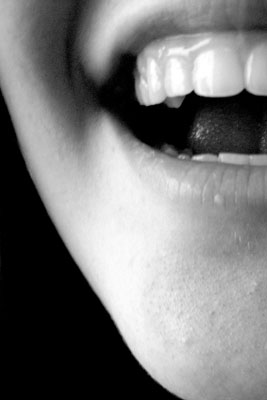All Nonfiction
- Bullying
- Books
- Academic
- Author Interviews
- Celebrity interviews
- College Articles
- College Essays
- Educator of the Year
- Heroes
- Interviews
- Memoir
- Personal Experience
- Sports
- Travel & Culture
All Opinions
- Bullying
- Current Events / Politics
- Discrimination
- Drugs / Alcohol / Smoking
- Entertainment / Celebrities
- Environment
- Love / Relationships
- Movies / Music / TV
- Pop Culture / Trends
- School / College
- Social Issues / Civics
- Spirituality / Religion
- Sports / Hobbies
All Hot Topics
- Bullying
- Community Service
- Environment
- Health
- Letters to the Editor
- Pride & Prejudice
- What Matters
- Back
Summer Guide
- Program Links
- Program Reviews
- Back
College Guide
- College Links
- College Reviews
- College Essays
- College Articles
- Back
Plaque Be Gone
The average shark has 300 teeth in various stages of development in their mouth at any given time. Humans have 32 teeth that last their whole life. Shark teeth are not that durable, and they constantly lose and replace their teeth. Humans have one set of adult teeth that last them their lifetime once all of their baby teeth fall out. The enamel on one's teeth is the hardest substance on the body, even stronger than bones. Knowing how important teeth are to daily living, it is important to take care of them. Dental hygiene was not taken seriously in the past which resulted in tooth decay, tooth loss, and harmful diseases in the mouth. Regular dental visits are the best weapon against harmful plaque and other diseases that can root in the mouth. Dental visits are important when it comes to the upkeep of your oral hygiene.
The real weapon against plaque was the evolution of dental knowledge as well as the man that made it clear that dental visits are necessary. Once someone understood how the mouth worked, it was obvious that they would figure out what caused the bountiful amount of possible diseases. It was between 1650 and 1800 that the concepts behind dentistry received its first solid beginning. The man behind the science was 17th century French Physician, Pierre Fauchard. He is called “The Father of Modern Dentistry,”, and he was the brains behind many of the procedures still used in today’s society. For instance, he was the man behind the thought process for dental fillings, and he also helped to explain that acids from sugar are a major source of tooth decay.
One might object here that dental visits are not mandatory and therefore should not be forced upon them. These people believe that just by brushing, flossing, and using mouthwash your oral hygiene is in check, which is not necessarily the case. This argument fails to acknowledge that there are three important factors dentists look for during the visit: periodontal disease, tooth decay, and gum disease that regular brushing and flossing does not help entirely. A regular dental visit is once every six months (twice a year) to make sure that everything is up to speed. Dental visits are important when it comes to removing the plaque that could impede a healthy mouth. “The first reason is that the body naturally builds up plaque and calculus and if it's not removed it embeds underneath the gum tissues and quietly causes periodontal disease. It doesn't hurt but it silently produces enzymes that dissolve away the bones.” (Bach, 2013, p. 2). Periodontal disease starts off as gingivitis and causes the gum to become swollen and red which is the body’s response to the presence of a harmful bacteria. Regular visits help combat silent diseases that can eventually cost someone’s oral health.
Skipping dental appointments may not seem like a big deal, but seeing a dentist helps prevent serious problems in the future. There are common diseases that occur in your mouth that affect your daily living. Plaque is a quickly expanding colony of living bacteria that needs to be defeated by stronger forces that a dentist posses. “The reason plaque is so difficult to defeat is that it thrives on the food particles you eat, as well as the warm, moist environment of your mouth” (Zabrin,K.C, 1988 Oct.). Brushing every day does eliminate some of the previously mentioned plaque, but it still does not eliminate all of the plaque that could possibly develop into a much deeper problem.
Dental visits are the best weapon against plaque and other harmful diseases. Although one can argue that regular dental visits are not mandatory or not important, they are running the risk of developing serious diseases or infections that could lead to other complications in the mouth and body. Dentists look and take care of your teeth to prevent complications in the mouth from occurring. Thanks to Pierre Fauchard many people smile with their pearly whites and allow others to see their beautiful smiles. The diseases that could root from your mouth without receiving dental care, could leave one without teeth and wishing they took care of them sooner.
References
Dubey, D. (1988, Oct 23). DENTAL HYGIENIST HELPS YOUNGSTERS GIVE FEAR THE BRUSH. Chicago Tribune (Pre-1997 Fulltext) Retrieved from `
Look, mom--no cavities! (2008, Jul 01). Chicago Tribune Retrieved
Steele, J. (2000, Jan 23). DENTAL HYGIENISTS ARE TEACHERS AS WELLS AS DOERS. Chicago Tribune Retrieved from

Similar Articles
JOIN THE DISCUSSION
This article has 0 comments.

I would like to be a dental hygienist in the future and I felt the need to research the importance of dental visits.